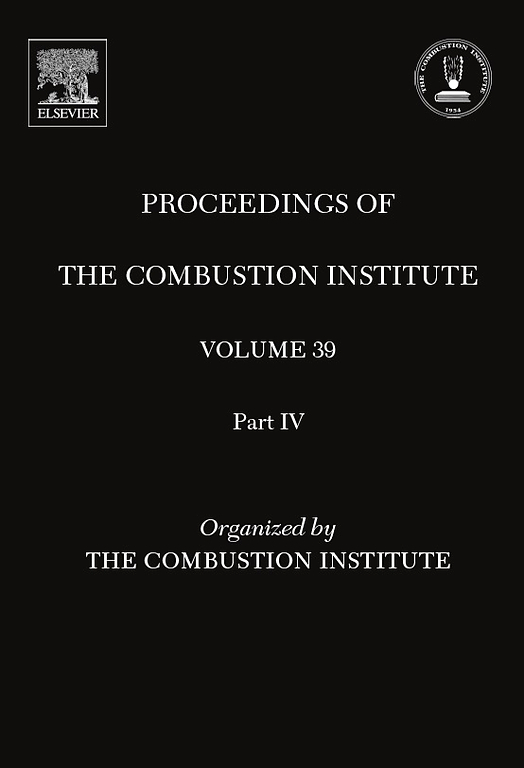机器学习驱动筛选燃油添加剂,提高火花点火发动机效率
IF 5.3
2区 工程技术
Q2 ENERGY & FUELS
引用次数: 0
摘要
燃料设计旨在开发和优化燃料,以满足特定的性能、环境和经济目标。它包含一系列考虑因素,包括选择适当的原料、调整分子结构和加入添加剂,以实现所需的特性。燃料设计的一个重要方面是其与解决环境问题(如减少温室气体排放和空气污染物)的相关性。在火花点火发动机中,提高发动机效率可减少二氧化碳排放量。燃料成分在提高发动机效率方面起着至关重要的作用。抗爆性能、汽化潜热(HoV)和层燃速度(LFS)是影响发动机工作状态的部分燃料特性。在当前的研究中,我们探讨了可提高火花点火式发动机效率的添加剂。我们开发了基于机器学习的定量结构-性能关系 (QSPR) 模型,用于预测 379,500 种仅含碳、氢和氧原子的碳氢化合物的研究辛烷值和发动机辛烷值、HoV 和 LFS。根据已建立的优点函数对分子进行排序,选出前五名候选分子。甲醇是最有前途的候选添加剂,在筛选出的候选添加剂中,甲醇的效率提升程度最高。其他可能的候选分子是取代呋喃和四氢呋喃。本文章由计算机程序翻译,如有差异,请以英文原文为准。
Machine learning-driven screening of fuel additives for increased spark-ignition engine efficiency
Fuel design aims to develop and optimize fuels to meet specific performance, environmental, and economic objectives. It encompasses a range of considerations, including selecting appropriate feedstocks, adjusting molecular structures, and incorporating additives to achieve desired characteristics. One critical aspect of fuel design is its relevance to addressing environmental concerns, such as reducing greenhouse gas emissions and air pollutants. In a spark-ignition engine, increasing engine efficiency leads to a reduction in CO2 emissions. The composition of the fuel plays a vital role in enhancing engine efficiency. Anti-knock properties, latent heat of vaporization (HoV), and laminar flame speed (LFS) are some of the fuel properties that can influence engine operating regimes. In the current study, we explore additives that can improve the efficiency of spark-ignition engines. Machine learning-based quantitative structure-property relationship (QSPR) models are developed to predict research and motor octane numbers, HoV, and LFS of 379,500 hydrocarbons containing only carbon, hydrogen, and oxygen atoms. The molecules are ranked based on an established merit function, and the top five candidates are selected. Methanol is the most promising additive candidate, allowing for the highest degree of efficiency enhancement among the screened candidates. Other potential candidates are substituted furans and tetrahydrofuran.
求助全文
通过发布文献求助,成功后即可免费获取论文全文。
去求助
来源期刊

Proceedings of the Combustion Institute
工程技术-工程:化工
CiteScore
7.00
自引率
0.00%
发文量
420
审稿时长
3.0 months
期刊介绍:
The Proceedings of the Combustion Institute contains forefront contributions in fundamentals and applications of combustion science. For more than 50 years, the Combustion Institute has served as the peak international society for dissemination of scientific and technical research in the combustion field. In addition to author submissions, the Proceedings of the Combustion Institute includes the Institute''s prestigious invited strategic and topical reviews that represent indispensable resources for emergent research in the field. All papers are subjected to rigorous peer review.
Research papers and invited topical reviews; Reaction Kinetics; Soot, PAH, and other large molecules; Diagnostics; Laminar Flames; Turbulent Flames; Heterogeneous Combustion; Spray and Droplet Combustion; Detonations, Explosions & Supersonic Combustion; Fire Research; Stationary Combustion Systems; IC Engine and Gas Turbine Combustion; New Technology Concepts
The electronic version of Proceedings of the Combustion Institute contains supplemental material such as reaction mechanisms, illustrating movies, and other data.
 求助内容:
求助内容: 应助结果提醒方式:
应助结果提醒方式:


